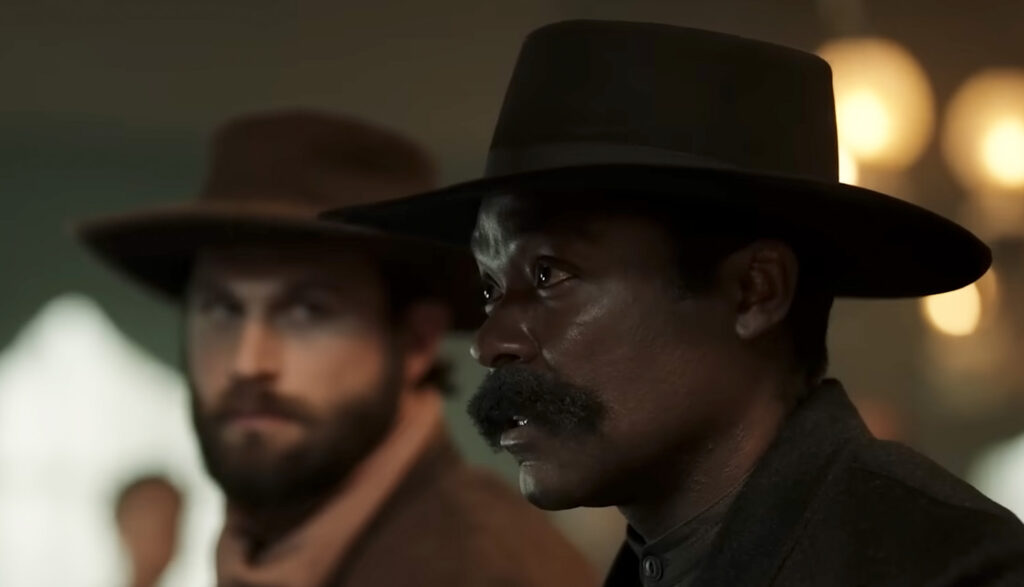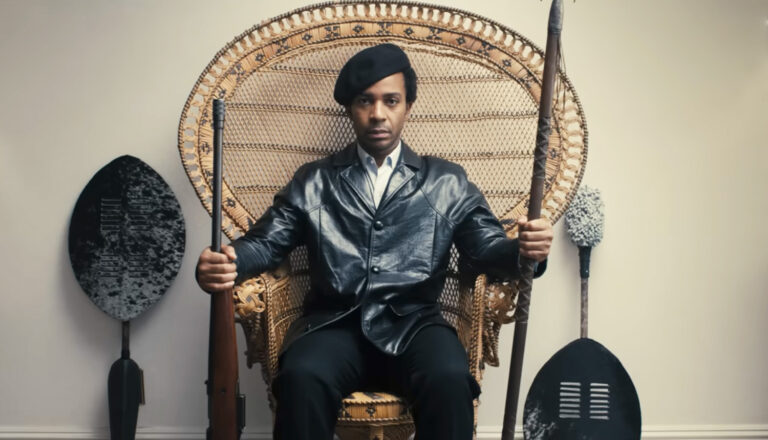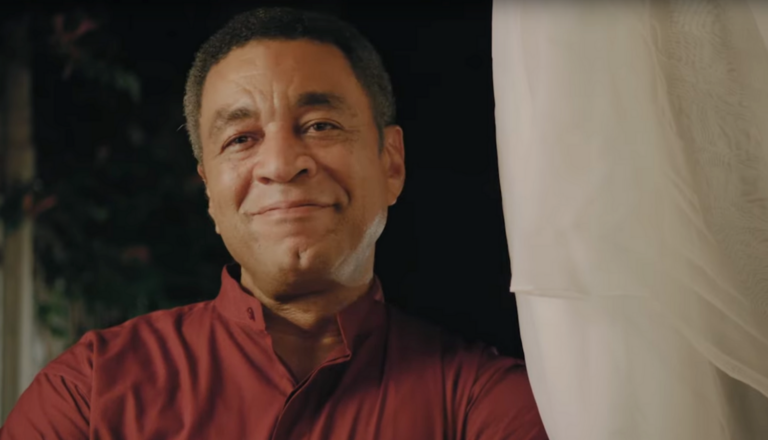
Doctor Who
The good Doctor’s been flitting around time, space and the BBC since 1963. Now he’s also a fixture in the US, toting his curiously British brand of sci-fi in his highly mobile TARDIS. Just how safe is this contraption?

There’s nothing new under the sun. As Bass Reeves would tell you, “Black, white or red, we all just men.”
During the Civil War, when Bass Reeves was enslaved under George Reeves, the Confederate atheist colonel told him that if there was a heaven, he was confident that Black people weren’t going to be going there.
“Only white folks go to the big dance, boy—if anybody’s going anywhere,” he said.
And then, George gave Bass an opportunity for freedom: If Bass beat him in a game of poker, then George would write a letter of manumission to set him free. But then, Bass discovered that George cheated. That’s when Bass decided that if he couldn’t beat George at poker, he’d just, well, beat George bloody.
And because of that, Bass had to flee—leaving behind not only his shackles but also his wife. He fled into Native American territory, where he learned many of the languages and grew accustomed to the culture. And when he finally returned to seek out his wife, he found an America that looked vastly different—where the Confederacy was defeated, and where he had a daughter.
But again, there’s nothing new under the sun. And men are always no more than men. So, let’s run it again.
After the Civil War, when Bass Reeves was a farmer struggling to make ends meet, he was approached by deputy U.S. Marshal Sherrill Lynn, a white man who looked to recruit him for his knowledge of Native American territory, language and culture. The atheist stood in disbelief of Bass’ Christian hope.
“You still believe in a Lord that let you spend half your life in chains?” He asks.
“Man made those chains,” Bass responds. “It was God who gave me the hope to believe in a future without them.”
Just as George saw Black people as inferior, Sherrill sees Native American people as nothing more than savages—especially since he’s got a scar on his head from when one of them tried to scalp him. It’s a scar that Bass says has tied chains around Sherrill’s heart. It’s a scar that motivates Sherrill to burn a Native American suspect to death with a Molotov as they try to capture and bring the man to trial.
And just as Bass beats George for cheating him, he punches Sherrill for his cold and callous attitude toward the event. And in that moment, Bass recognizes that his own heart is just as full of anger as everyone else.
But this time, things are different. Bass doesn’t flee. And when Sherrill comes to talk to him, he doesn’t threaten punishment. Instead, he recognizes Bass’ grit and skillset, and he offers Bass a job as a deputy U.S. Marshal in a Native American territory—a job Bass graciously accepts.
After all, Bass knows the truth: that all men are men, men are full of anger, and there’s nothing new under the sun. So, who else would be better suited to display God’s justice—and maybe, His mercy—upon men?
Lawmen: Bass Reeves is based on the real Bass Reeves, one of the first Black men to become a deputy U.S. Marshal.
Like most historical dramas, Bass takes some creative liberties in order to generate action for the big screen. But it also tells many truths, too.
Bass was a man of law. History tells us that he was impartial and cared deeply for justice, even bringing his own son to trial. He also loved his large family and always wanted to provide for them. And his Christian faith was likewise very important to him—and so far, the show has only had positive things to say about the lawman’s faith.
However, Lawmen also tells some harder truths, too. We see graphic deaths on our TVs as people are shot, scalped or burned to death. Racist sentiments are common, and there’s a bit of language that comes with those sentiments.
Paramount’s Lawmen: Bass Reeves definitely has plenty of historical muck for viewers to wade through. But as historical dramas go, this one thus far has had its share of good qualities, too. It emphasizes the equality of man, the importance of mercy and justice and even comes with some healthy messages about Christianity.
After he beats his master, Bass flees into Indian territory—and when he returns, he finds the country looks far different from the one he left.
We see many people shot and killed, each dying with a quick spurt of blood. Some are shot through the head. Other people are blown up by cannon fire; one man is seen crawling without his legs. Others are hit with hatchets, and one man is graphically and gruesomely scalped. A boy is shot and killed. Someone is set on fire and burned alive before being put out of his misery with a gunshot. A bloodied Black man is pulled by horses with his hands bound. A man’s leg is seen being sawed off in a medical tent. Bass beats a man bloody. Walking a long way without shoes, Bass’ feet are cut up and mangled, and he pulls a long thorn out from his foot.
Bass is seen shirtless a couple times, and he strips his wife out of her shirt, though the camera strategically hides any nudity. The two passionately kiss, and the camera fades away as they begin to have sex.
A man states that “God favors the Confederacy.” Bass desires to learn to read so that he can study the Bible. After George is accused of cheating in poker, George quotes Ephesians 6 to attempt to get Bass to submit to him, and Bass counters with Proverbs 11:1. Someone warns of an ambush, saying that “Hell is coming on wings of its own.”
When asked by George if he’s falling asleep, Bass responds that he’s simply “admiring God’s creation” as he looks up at the stars. This prompts George to ask Bass if he’s ever considered that God could just be a creation of man, to which Bass denies. George doubts heaven exists, but he is confident that if it does, Black people won’t be going to “the good part” of it. Later, the two play a game of poker, and George exclaims that Bass’s God has been good to him.
People drink alcohol, and a man is found intoxicated. Men strip a cow carcass for meat. Bass eats a snake that’s been picked apart by crows.
The n-word is used three times, and the s-word is used once. We also hear “d–n” used six times. God’s name is used in vain five times, including four uses of “g-dd–n.” Jesus’ name is used in vain once.


Kennedy Unthank studied journalism at the University of Missouri. He knew he wanted to write for a living when he won a contest for “best fantasy story” while in the 4th grade. What he didn’t know at the time, however, was that he was the only person to submit a story. Regardless, the seed was planted. Kennedy collects and plays board games in his free time, and he loves to talk about biblical apologetics. He thinks the ending of Lost “wasn’t that bad.”

The good Doctor’s been flitting around time, space and the BBC since 1963. Now he’s also a fixture in the US, toting his curiously British brand of sci-fi in his highly mobile TARDIS. Just how safe is this contraption?

The Big Cigar’s protagonist, Huey P. Newton, founder of the Black Panthers, is suspicious of Hollywood. In that, Plugged In would agree.

Milo offers great messages about friendship and trying new things, and it’s free of most anything parents would find concerning.

People from all walks of life learn lessons from God Himself that will change their lives.